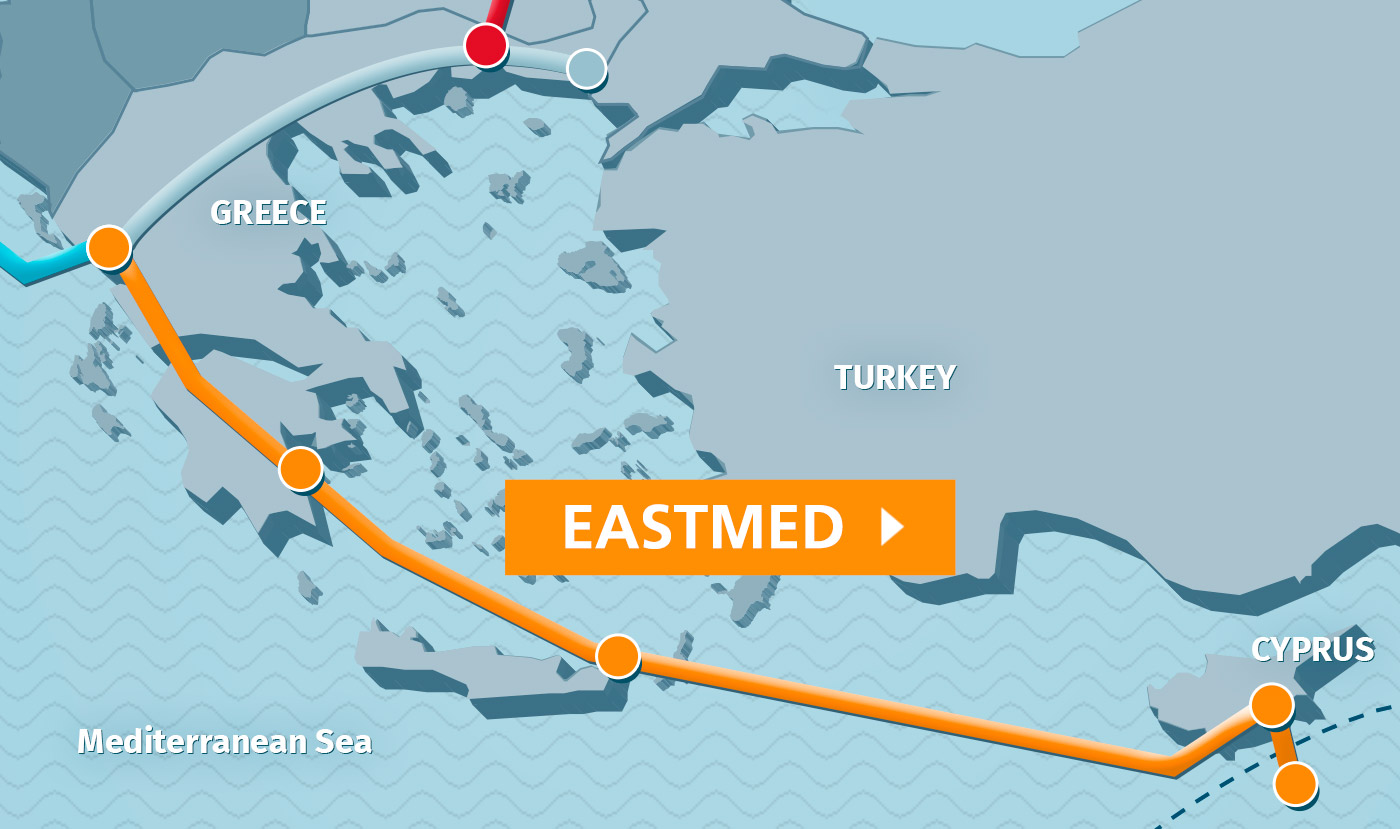Because Italy will gas up with Eastmed

All the maneuvers of Italy in the Mediterranean for gas. Fabio Caffio's article for Affarinternazionali
After hinting at the possibility of buying Italian Fremm frigates, Greece switched horses by opting for France. In the meantime, Italy has fully joined the EastMed gas pipeline project with a choice aimed at making the peninsula a European gas hub, overcoming the uncertainties of the energy transition.
The risks associated with crossing the alleged Turkish Exclusive Economic Zone (EEZ) must be associated with the pipeline that will arrive in Salento. In the background, the unresolved question of the lack of exploitation of the potential energy resources of the Italian EEZ.
The critical knots of Italian-Greek relations dating back to the last century and in particular to the period of the Treaty of Sevres of 1920 are ancient: in that period Athens, in the name of the renewed Panhellenism of President Eleutherios Venizelos and with the support of France, tried to contain our ambitions on Asia Minor and the Dodecanese.
Since the postwar period, once the old rivalries have been put aside, the two countries have always worked together loyally. Proof of this is the 2020 EEZ delimitation agreement which allowed Athens to define a first section of its maritime border, even if strangely the year before it had opened the Italian EEZ methane-bearing areas in front of Leuca for research.
In this perspective, the hypothetical purchase of Italian Fremm could have been nothing more than a tactical expedient to induce us to join EastMed.
Italy and the gas of the eastern Mediterranean
Italy's accession in 2020 to the East Mediterranean Gas Forum (EMGF ) consisting of Cyprus, Egypt, Jordan, Greece and the Palestinian National Authority paved the way for the project to be implemented. Thus , our reservations about an initiative long considered unresponsive to the national interest in comparison with the TAP have disappeared .
Passed over in silence in recent months , our decision to allow the construction of the ionic section of the infrastructure – the Igi Poseidon methane pipeline , a joint venture between the Greek Depa, and Edison Italia of the French group Edf – can be considered far-sighted in the light of the current gas crisis . EastMed will transport gas from the Israeli and Cypriot fields of the Levant Sea to Italy via Cyprus and Greece with 1,300 kilometers of submarine pipelines.
THE TRACK
The route of the gas pipeline in the eastern Mediterranean has been roughly established: the longest section connects Cyprus to the eastern side of Crete, passing from the Turkish-Libyan EEZ of 2019 which overlaps there with the Greek-Egyptian one of 2020.
In theory, the consortium that will carry out the work has the right to install the pipeline, as the 1982 Law of the Sea Convention recognizes this freedom at the bottom of the EEZs. The coastal State cannot prevent its installation, but the path is subject to its consent.
But what is the specific State competent to grant the authorizations for the execution of the works? Businesses should turn to both Greece and Turkey according to a modus operandi that is followed for similar activities in the disputed EEZs of the Aegean and the Levant Sea.
It is therefore logical to think of a modification of the route to avoid hypothetical situations such as, needless to say, happened a few days ago to the ship “ Naval Geo Trade ” off the coast of Crete. Precisely for this reason, it seems that Egypt has proposed to transport Israeli gas to its territory, making it then arrive south of Crete through the EEZ bordered with Greece, clearly excluding Cyprus.
THE ITALIAN EEZ
The plan to make Italy a gas hub has its own economic logic and responds to the principles of energy security of the European Union aimed at freeing member countries from Russian energy dependence.
The Union has not yet ruled on the compliance of gas with the decarbonisation objectives. On the Italian side, however, it seems clear that its elimination is postponed to the long term, while it will continue to be used in the current transition phase.
If all this is true, it is not clear why the exploitation of the (actual and potential) methane fields of the Italian EEZ should remain a marginal activity compared to the long times of marine renewables that are struggling to start.
This is a machine translation from Italian language of a post published on Start Magazine at the URL https://www.startmag.it/energia/italia-eastmed-gas-mediterraneo/ on Sun, 10 Oct 2021 06:43:27 +0000.
